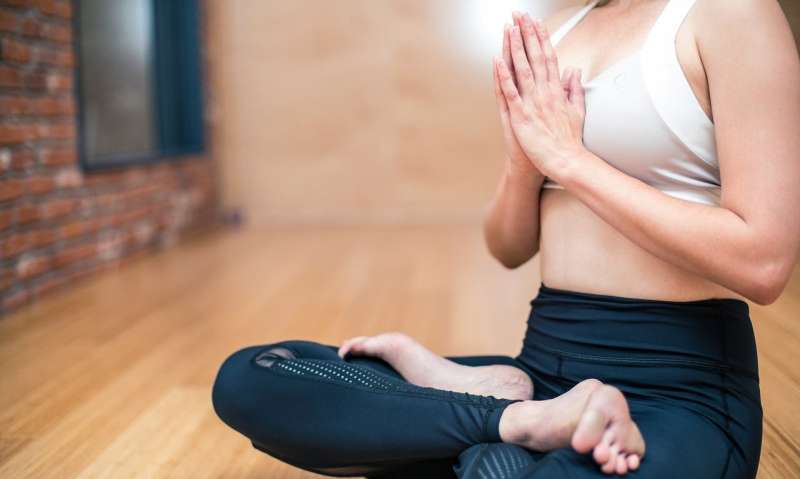Mind-body medicine experts urge full integration of stress reduction into care and research

In a perspective published in the New England Journal of Medicine, researchers from the Benson-Henry Institute (BHI) for Mind Body Medicine at Massachusetts General Hospital (MGH) call for broader use of mind-body practices.
In a time when meditation, yoga and mindfulness increase in popularity for general well-being, the piece emphasizes the necessity of fully integrating these stress-reduction practices into patient treatment plans and medical research.
Stress exacerbates anxiety and depression and plays a role in conditions such as cardiovascular disease, autoimmune disorders, irritable bowel syndrome, headaches and chronic pain, according to lead author Michelle Dossett, MD, Ph.D., of UC Davis Health.
"By reducing the body's stress response, mind-body practices can be a powerful adjunct in medicine by helping to decrease patients' symptoms and improving their quality of life," says Dossett, who was a physician and researcher with BHI when the perspective was written.
Despite its recent rise in popularity among the general public, mind-body medicine isn't new. Researchers at BHI have been integrating the field of mind-body medicine into MGH's clinical care, research and training programs since 2006.
Early research on the advantages of such techniques dates back 40+ years, when the institute's founder and perspective senior author, Herbert Benson, MD, became one of the first Western physicians to bring spirituality and healing into medicine and is most famously known for his work with the Relaxation Response.
"The Relaxation Response," Benson states, "is an inborn, anti-stress capacity that transcends the differences that separate mind from body, science from spirituality and one culture from another."
At BHI, mind-body medicine is widely recognized as the third leg of a three-legged stool: the first leg is surgery, the second is pharmaceuticals and the third is self-care, in which patients learn techniques to improve their own health through mind-body medicine, nutrition and exercise.
"Western medicine has produced revolutionary health benefits through advances in pharmacotherapies and procedures," the researchers describe in the perspective. "It now faces enormous challenges in battling stress-related noncommunicable diseases. …Chronic pain, often perpetuated by psychosocial stress, has become an epidemic that our pharmaceutical arsenal is poorly equipped to handle and medical costs continue to soar. Mind-body therapies can be a helpful adjunct in managing chronic pain and other stress-related noncommunicable diseases by fostering resilience through self-care."
The article also addresses skeptical patients' preconceived notions of mind-body medicine as well as the anticipated barriers of service coverage and clinician education on the appropriate use of these tools. These challenges further reinforce the need for continued research and investment into the development and implementation of personalized practices to maximize their public health potential.
Dossett and her colleagues also note that mind-body practices can be helpful in reducing stress related to the COVID-19 epidemic.
Benson and perspective co-author Gregory Fricchione, MD, who is BHI's current director, lead the field of mind-body medicine and research on counteracting the harmful effects of stress, thereby promoting health and reducing the vulnerability to stress-related illnesses. Dossett, who trained and mentored with Fricchione and Benson, moves the research of mind-body medicine beyond the walls of the BHI at UC Davis Health as a lead researcher in integrative medicine and assistant professor of internal medicine.
More information: Michelle L. Dossett et al. A New Era for Mind–Body Medicine, New England Journal of Medicine (2020). DOI: 10.1056/NEJMp1917461



















